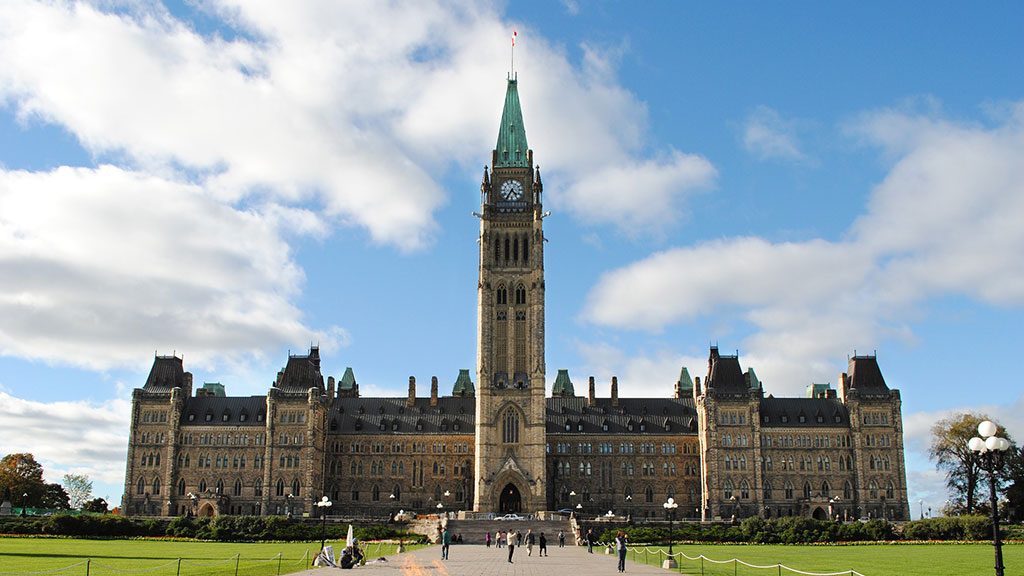Leaders of national construction associations say they are not entirely certain about what a Liberal minority government will mean for the Canadian construction industry, but they are hoping the party will maintain the commitment to long-term infrastructure funding it set out in its first term in office.
The Liberal party, led by incumbent Prime Minister Justin Trudeau, won 157 seats in the Oct. 21 election to form a minority government, which requires the support of another party in order to stay in power. The Conservatives won 121 seats in the House of Commons, the NDP won 24 and the Green Party won three seats. The Bloc Quebecois came out strong, winning 32 seats.
“I think there was a consensus that we would be going into a minority government, we just weren’t sure who was going to lead that minority government, now we know,” said John Gamble, president and CEO of the Association of Consulting Engineering Companies — Canada (ACEC), adding the association will be watching closely to make sure investments continue and that they go into areas that will have the most significant benefit to Canadians.
“What that minority government looks like is still very much up in the air. The good news for us is that nobody was against infrastructure…but certainly with the Liberals, we can expect that they will follow through on their current commitments to supporting public infrastructure.”
The president of the Canadian Construction Association, Mary Van Buren, said she was “underwhelmed” with the lack of discussion around national infrastructure issues during the election campaign, as the focus was more on healthcare, education, jobs and the environment.
“The link between how the industry can partner with those we felt was somewhat lost and not adequately discussed,” Van Buren explained.
“Our members are building the hospitals and schools and all the ecosystems in support of those including roads, bridges and light rail transit and we felt that link was not clear to Canadians…we are looking forward to discussing with the reelected prime minister and all parties in parliament how our industry can work with government to advance these important issues.”
Days before the election, Conservative leader Andrew Scheer announced if elected, his government would extend the Liberals 12-year $187 billion Investing in Canada plan to 15 years in order to achieve a balanced budget. That translated to about an $18.1 billion reduction in infrastructure spending over the next five years.
Both the NDP and the Bloc are not particularly friendly to the resource sector and outright hostile to pipelines,
— John Gamble
Association of Consulting Engineering Companies — Canada
Both the Conservatives and NDP also vowed to scrap the Canada Infrastructure Bank. “We are pleased that it will continue to exist and we hope it will be more confidence to the bank to move forward to attract those new investments,” said Van Buren.
The Mechanical Contractors Association of Canada (MCAC), says it’s prepared to work with MPs from all parties on issues of importance to the industry, especially when it comes to ensuring the regulations supporting prompt payment and promoting the skilled trades are in place as soon as possible.
“On behalf of our close to 1,000 members across Canada, we look forward to continuing the conversation with elected MPs about the importance of our sector as it relates to Canada and the Canadian economy,” said Pierre Boucher, MCAC’s CEO, in a statement.
“We would encourage this Parliament to continue supporting and promoting the skilled trades in Canada and to work closely with our industry and our association on how we can help address concerns such as climate change and innovation.”
Gamble said there are also concerns about decisions surrounding natural resources and pipeline.
“Both the NDP and the Bloc are not particularly friendly to the resource sector and outright hostile to pipelines,” he noted. “This is an area where we are in desperate need of pragmatism.”
“It’s an absolute given that we have to address climate change, that we’re going to have to transition away from our dependency on fossil fuels but we do not have the luxury of just simply turning off the taps overnight,” he added.
“In the meantime, our industry can help with socially and environmentally responsible access to, extraction and transport of our natural resources.”
“We are very happy that the liberal government has committed to moving the TransMountain pipeline expansion project forward,” Van Buren noted. “This is something that is top of mind for many of our members and it will also help to strengthen investor confidence in Canada.”
ACEC — Canada is also interested in what the regulations will look like in Bill C-69, an Act to enact the Impact Assessment Act and the Canadian Energy Regulator Act, legislation designed to improve how the federal government assesses and approves major development projects such as pipelines and hydro dams.
“They have about 20-plus impact factors that have to be considered but very little guidance that would help us understand exactly what those impact factors actually mean and how the government would expect us to actually address them in context of an impact assessment,” explained Gamble.
“That, presumably, is going to be resolved in the regulations…Ongoing uncertainty around the process will make it very difficult for the proponents of and investors in major projects, both public and private, to make informed business decisions.”
Follow Angela Gismondi on Twitter @DCN_Angela.











Recent Comments